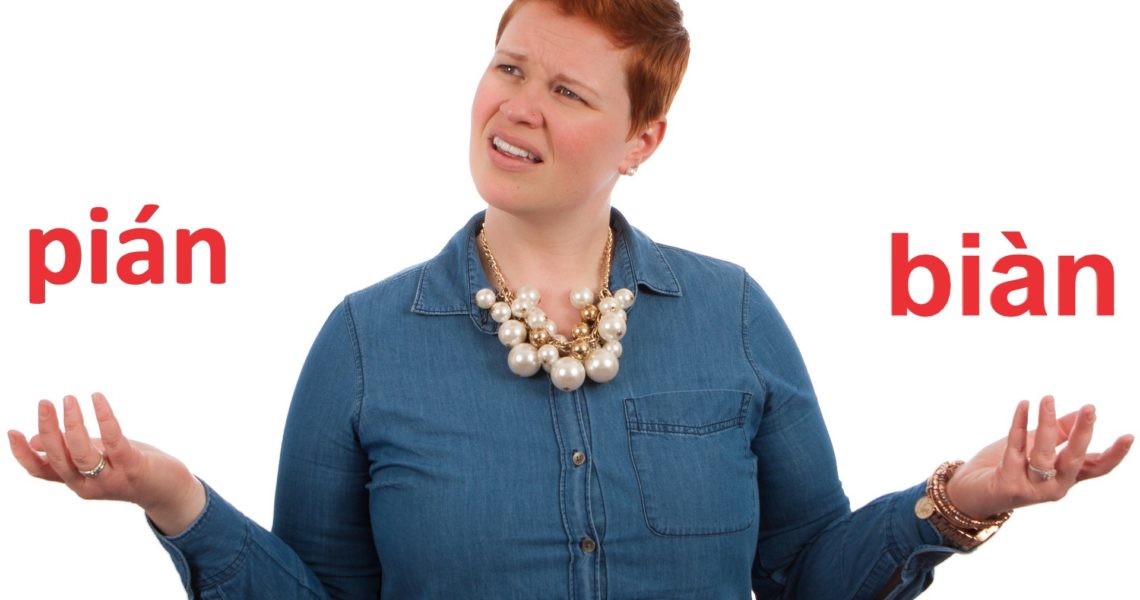In Mandarin, there are a lot of characters with 2 or more pronunciations. And the differences between/amount different pronunciations normally related to its meaning. Let’s some commonly used examples about Mandarin Characters with Multiple Pronunciation and Meanings.
更
gèng:when pronounce” gèng”, it means “even more”. Such as 更多、更好、更熱。The part of speech of this pronunciation is adv.
gēng:when pronounce” gēng”, it means “update”. Such as 更新、更換。The part of speech of this pronunciation is Verb.
便
biàn:there are several meanings under this pronunciation. Such as 方便、便利
pián:the most common combination is 便宜, which means cheap.
Not like “更”,”便” itself has many different meanings. We choice pronunciation according to the meaning.
行
xíng:there are 2 popular usages under this pronunciation. One is “行/不行”, which means can or can’t. another is related to “move”, such as 行動、行為、行人.
háng:there are 3 popular usages under this pronunciation. One is “銀行”, which means bank. Another is row. The last one is about jobs, such as 行業, which means one’s professional or industrial.
還
hái:when we pronounce “hái”, it means “still”, such as 還沒、還要、還有. The part of speech of this pronunciation is adv.
huán:when we pronounce “huán”, it means “return something to somebody”. Such as 還錢、還給他. The part of speech of this pronunciation is Verb.
空
kōng:when we pronounce “kōng”, the first meaning is empty. Such as 空房間、空教室. The part of speech of this usage is adj. The second meaning is space, such as 空間、天空. The part of speech of this usage is Noun.
kòng:when we pronounce “kòng”, it means “free time”. Such as 有空、空閒. The part of speech of this pronunciation is Noun.
了
le:when we pronounce “le”, it is a grammatical word. Which means only use it when there are grammatical needs, such as 我吃飽了(I am full), 太貴了(too expensive).
liǎo:when we pronounce “liǎo”, there are 2 popular usages. The first usage is also under grammatical needs, such as 我吃不了那麼多(I can’t eat that much), 我沒有錢,買不了那麼貴的東西(I am not rich, I can’t pay for such expensive thing). The second usage means “understand”, such as 了解.
假
jiǎ:when we pronounce “jiǎ”, it means fake. Such as 假人,假錢. The part of speech of this usage is adj
jià:when we pronounce “jià”, it means “off day” or “vocation”. Such as 放假,假日. The part of speech of this usage is Noun.
長
zhǎng:when we pronounce “zhǎng”, it means grow. Such as 長大,長高. The part of speech of this usage is Verb.
cháng:when we pronounce “cháng” it means long. Such as 長髮, 長褲. The part of speech of this usage is Adv.
處
chù:when we pronounce “chù”, it means “placae”. Such as 到處, 四處. The part of speech of this usage is Noun.
chǔ:when we pronounce “chǔ”, it means “to deal with”. Such as 處理, 處罰. The part of speech of this usage is Verb.
種
zhǒng:when we pronounce “zhǒng”, it means ”type”. Such as 種類, 一種水果. The part of speech of this usage can be either measure word or Noun.
zhòng:when we pronounce “zhòng”, it means “to plant”. Such as 種花, 種樹. The part of speech of this usage is Verb.
Note:The above information is just for examples, not including all meanings/usages/ pronunciations.
Here you can read about Mandarin Chinese confusing word pairs ~ the near-synonyms in Mandarin
Here you can read about 8 Confusing Mandarin Chinese Word Pairs
Here you can read about How to practice Mandarin Chinese when you are not surrounded by it.
If you are interesting in us, you can get more information about us Here
Free useful document to download 8 smart ways to think in Chinese
